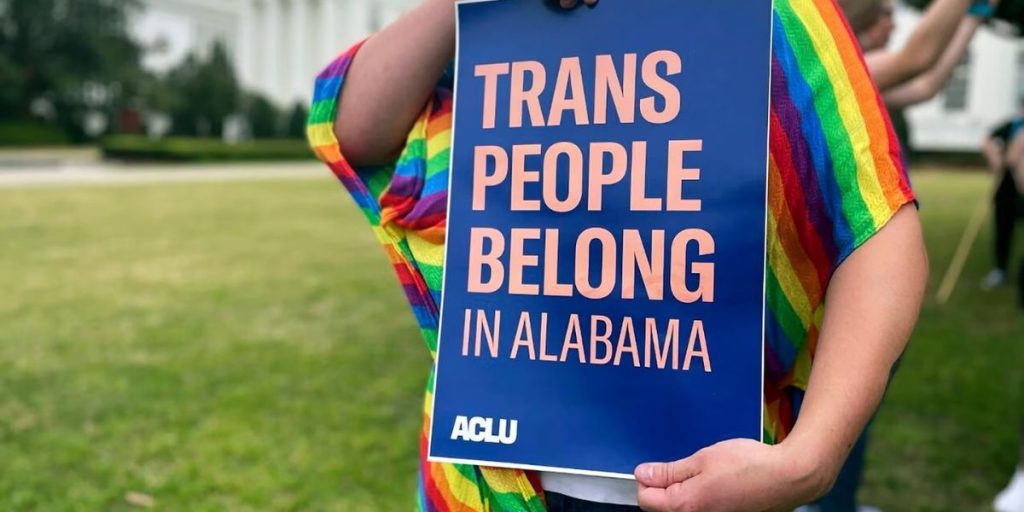A federal appeals court said Thursday that Alabama can begin enforcing a prohibition on the use of puberty blockers and hormones to treat transgender people under the age of 19, allowing the state’s request to suspend a preliminary injunction that had prevented enforcement of the 2022 legislation.
The 11th U.S. Circuit Court of Appeals earlier determined that the injunction should be lifted, but the judgment was essentially put on hold while families with transgender children petitioned the whole appeal court for reconsideration. The ruling issued on Thursday will allow the ban to take force while the whole court considers whether to reconsider the judgment.
The order was hailed by state Attorney General Steve Marshall as a “significant victory for our country, for children, and for common sense.”
“The physical and psychological safety of our children can now be better protected from these untested and life-altering chemical and surgical procedures through the implementation of the Alabama Vulnerable Child Compassion and Protection Act,” Marshall said in a statement.
Lawyers for parents of transgender teenagers who challenged the ban claimed the ruling would “hurt parents and children in the state.”
“Alabama’s transgender healthcare ban will harm thousands of transgender adolescents across the state and put parents in the excruciating position of not being able to get the medical care their children need to thrive,” said a joint statement from GLBTQ Legal Advocates & Defenders, the National Center for Lesbian Rights, the Southern Poverty Law Center, and the Human Rights Campaign.

In 2022, Alabama Gov. Kay Ivey signed the Vulnerable Child Compassion and Protection Act into law, making it a crime punishable by up to ten years in prison for doctors to use puberty blockers or hormones to help anyone under the age of 19 affirm their gender identity.
At least 22 states have now approved legislation restricting or prohibiting gender-affirming medical care for transgender adolescents, with several of these facing challenges or being blocked from implementation. Courts have provided a mixed bag of decisions, with the nation’s first statute, passed in Arkansas, being overturned by a federal judge who said that the prohibition violated the due process rights of young transgender persons and their families.
Attorneys for Tennessee transgender teens and their families have petitioned the United States Supreme Court to overturn the state’s restriction on gender-affirming care for minors, which was upheld by a lower court. The court is likely to determine whether or not to hear the case later this year.
Four families with transgender children aged 12 to 17 challenged the Alabama statute as a breach of equal protection and free speech rights, as well as an intrusion into family medical decisions. The United States Department of Justice joined their lawsuit, which sought to overturn the legislation.
When ordering the preliminary injunction, U.S. District Judge Liles Burke, nominated to the court by then-President Donald Trump in 2017, determined that Alabama had shown no credible evidence to prove that transitioning drugs are “experimental.” Alabama filed an appeal with the 11th Circuit. The trial for the challenge to the Alabama prohibition is set for early this year.